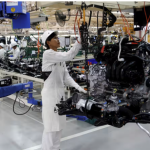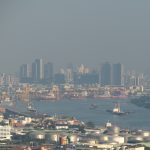In light of the collapse of the 30-storey State Audit Office, the Federation of Thai Industries (FTI) has proposed several recommendations to tackle the issue of substandard steel in Thailand, amid concerns that such steel may have contributed to the disaster.
Bantoon Juicharern, chairman of the FTI’s Iron and Steel Industry Group, emphasized the need for strict adherence to quality standards in steel production, alongside enhanced regulatory oversight. He urged consumer education on the benefits of choosing quality-certified products over cheaper, inferior alternatives. Furthermore, imported items, including prefabricated steel structures, of which 700,000 tonnes were imported in 2024, should be subject to mandatory quality inspections.
He highlighted the importance of improving transparency in quality control as part of the essential recommendations. Measures aimed at tracking and verifying steel quality from production to final use should be established. This would involve stricter enforcement of industrial certification standards and ensuring traceability of steel within the market. Public awareness campaigns should be launched to inform consumers about selecting high-quality steel, he added.
Mr. Bantoon noted that Thailand’s steel demand for this year is expected to be between 16.0 and 16.3 million tonnes, a decline from pre-COVID-19 levels of 18 to 19 million tonnes. The Thai steel industry is grappling with considerable challenges posed by China’s production surplus, which currently stands at 1.1 billion tonnes of steel annually, against a domestic demand of around 900 million tonnes. This creates an excess of 200 million tonnes available for export, notably to Thailand and other ASEAN nations, raising concerns about the influx of substandard steel.
The FTI has credible information indicating that around 30,000 tonnes of substandard steel products have been imported, with ongoing shipments. This includes aluminium-zinc coated steel, commonly referred to as SZACC, which has been misclassified under the tariff code for magnesium-coated steel to evade mandatory standards and anti-dumping (AD) duties. These imports are arriving via Laem Chabang Port. Mr. Bantoon stated that legal action should be pursued if discrepancies are found between declared product classifications and actual products by the Customs Department.
He also pointed out that since 2017, when the Chinese government banned steel mills using induction furnace technology over environmental and quality issues, many of these steel manufacturers have moved to Thailand, contributing to problems such as overcapacity, aggressive price competition, and, crucially, concerns regarding steel quality and environmental impacts. To address these issues, the FTI has laid out recommendations aimed at enhancing steel quality standards and ensuring fair competition within Thailand’s steel sector.
Additionally, the FTI has called for fair competition to be upheld so that domestic steel makers can effectively compete against imports and relocated factories. Authorities should enforce regulations ensuring that all manufacturers comply equally with labor laws, environmental protections, taxation, and product quality standards.
The FTI has also suggested that the government establish procurement targets mandating that at least 50% of public sector projects utilize domestically produced steel to support “Made in Thailand” initiatives. Expanding this policy to Public-Private Partnership projects exceeding 1 trillion baht annually would further stimulate the local industry and economy.
On a broader scale, the FTI has advocated for the promotion of “green steel” development within the industry.




